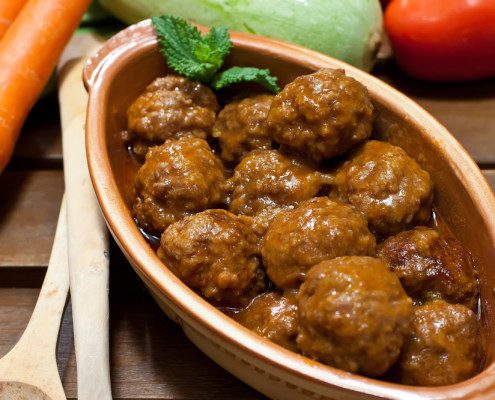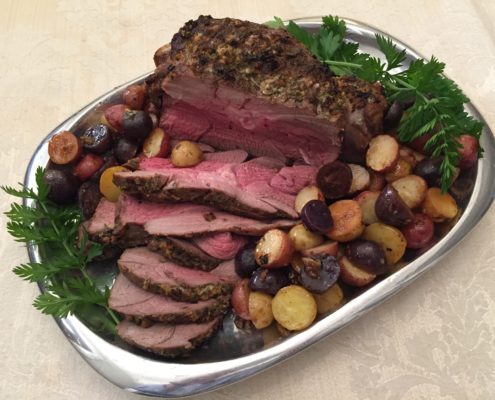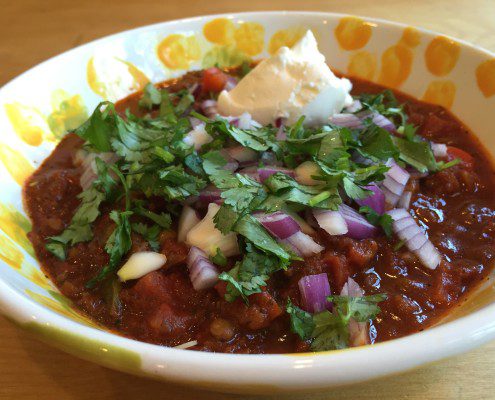I ate meat every day growing up – beef, chicken, pork. Couldn’t have conceived of a complete meal without it.
Then I ate almost no meat because I though it was better for my health and for the planet.
Now I am back to eating meat because of what I learned training as a nutritional therapist.
To eat meat or not is a very personal choice. I choose a moderate path
- Meat as the minor part of a plant-rich lifestyle
- Variety of meats: beef, bison and pork, fish and poultry (chicken or turkey) and gradually I started alternating meat—included meals with vegetarian meals.
- Adding plant foods to meatloaf and meatballs: quinoa, lentils, mushrooms, shredded zucchini or carrots…
- The key issue for me is eat sustainably raised meat; it is better for my health and better for the environment
[su_expanding_quote_book alignment=”right” source_author=”Marion Nestle” source_title=”What to Eat” affiliate_link=”http://amzn.to/tocome” full_quote=”The rules for organic meat production expressly forbid feeding animal by-products to other animals. They also forbid the use of antibiotics and hormones and require animals and birds to be raised under conditions that appear more humane than those typical of commercial feedlots and batteries. These are good reasons to choose organic meats.” short_quote=”The rules for organic meat production expressly forbid feeding animal by-products to other animals”]
Bison are grass-fed and industry standards don’t allow the use of hormones or routine antibiotics. Sometimes I find wild game at the farmer’s market: boar, deer, or duck. Venison sausage anyone?
There’s still a place in my life for steaks on occasion. I’ve embraced the “Better Meat, Less Meat” path eloquently defined by Slow Food. I believe their philosophy that by eating consciously and locally is not only better for our health, but it also supports more ethical and sustainable practices for the animals and for our planet.
[su_expanding_quote_web alignment=”left” source_site=”SlowFood USA” source_url=”http://www.slowfoodusa.org/blog-post/slow-meat-in-search-of-a-way-to-ensure-all-meat-is-good-clean-and-fair” full_quote=”Nutritionists argue that meat can be an important part of the human diet. Scientists say it was the act of eating meat that our distant ancestors were able to develop larger brains and evolve to the top of the global food chain. Conversely, research shows a high processed-meat diet can lead to serious health problems for the modern human being and that those who refrain from eating meat altogether are much more likely to live longer lives. The many devastating health and environmental impacts of the factory farm system, which produces animals in concentrated and often inhumane ways, is well documented. However, there’s compelling research arguing that domesticated livestock may be the key to maintaining and restoring the Earth’s precious soil and combating climate change.” short_quote=”Nutritionists argue that meat can be an important part of the human diet”] [/su_expanding_quote_web]
It is more expensive to eat sustainably raised meat. Not eating it every day, and in smaller quantity makes it affordable. Alos, eating meats as part of plant rich foods increases the nutritional value for our bodies. And we enjoy more expensive meats for special occasions— beef tenderloin, prime rib roast or an Easter leg of lamb.
Updated from original post January 2016





